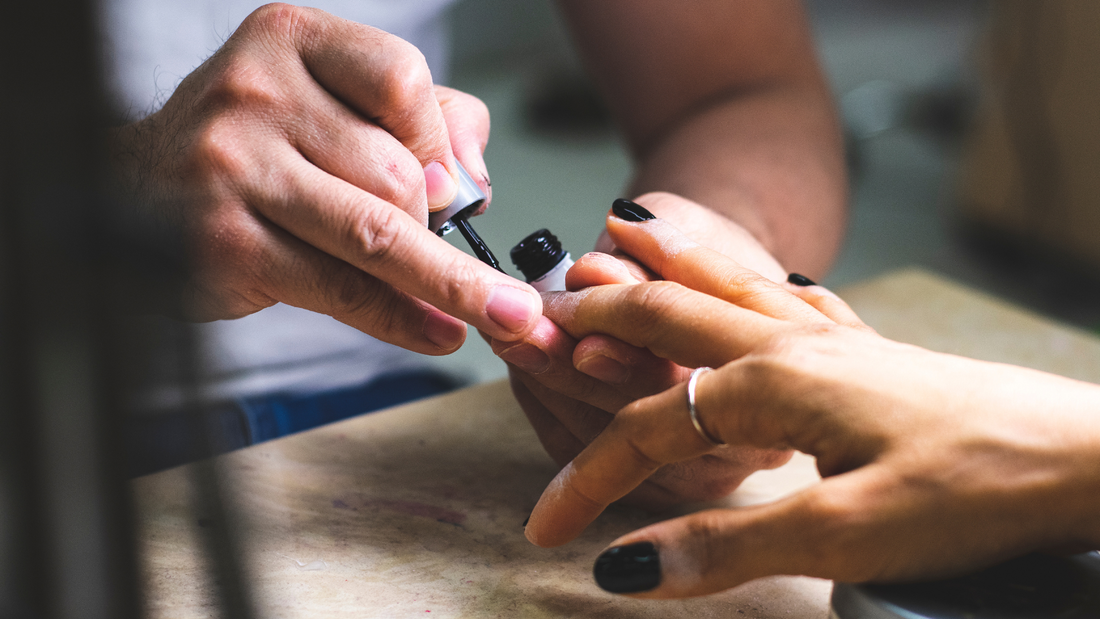
Running a Nail Salon from Home: Legal, Safety, and Insurance Realities
Home-based nail salons are becoming more common as professionals look for flexibility, lower overhead, and independence. It sounds simple, a few clients, a small setup, and a comfortable space, but what most people don’t realize is that even small-scale beauty businesses carry real legal, safety, and liability risks.
And if you’re renting, sharing a building, or working out of a residential property, the risks grow exponentially for both the business owner and the landlord.
Let’s break down what to know before turning a living room into a salon, what regulations apply, and why nail technician insurance isn’t just smart, it’s important.
When Home-Based Businesses Cross the Legal Line
Running any business from a residential property isn’t automatically illegal, but there are rules. Most cities classify residential spaces as non-commercial zones. That means before you see your first client, you typically need:
- A business license issued by the city or county.
- A state cosmetology license if you’re performing nail or beauty services.
-
Zoning or home occupation permits that allow limited business activity at your residence.
If your property isn’t zoned for business use, local ordinances may prohibit commercial traffic, signage, or chemical use in residential areas. That’s why nail salons, even small, part-time ones, can quickly run afoul of city codes if proper permits aren’t secured.
Why Landlords and Neighbors Care
When someone operates a nail salon out of an apartment or shared building, it doesn’t just affect their space, it affects everyone.
Common issues include:
- Parking problems for tenants or visitors.
- Odors and ventilation hazards from nail products and solvents.
- Foot traffic that increases wear and tear or disrupts quiet enjoyment.
- Fire and chemical risks that threaten the entire building.
These concerns aren’t trivial. If an unlicensed nail business causes a fire or chemical leak, a landlord’s insurance may refuse to cover damages if they weren’t aware of, or didn’t approve, business activity.
That’s why most residential leases specifically ban operating a business on the property, especially those involving chemicals or client visits.
The Hidden Dangers of Salon Chemicals
Nail salons, even home-based ones, use a mix of products that contain volatile organic compounds (VOCs), such as acetone, toluene, and formaldehyde. Without proper ventilation and disposal, these chemicals can harm both people and property.
Common hazards include:
- Poor ventilation leading to long-term respiratory irritation.
- Flammable materials stored in non-commercial environments.
- Chemical reactions with building materials like PVC or CPVC pipes, acetone, for example, can break them down over time, leading to leaks and water damage.
-
Environmental disposal violations when used products or polish removers are poured down residential drains.
The Occupational Safety and Health Administration (OSHA) and the Environmental Protection Agency (EPA) both regulate nail salons, even small ones, under workplace safety and environmental protection laws. That means “it’s just a side business” isn’t an excuse for noncompliance.
The Liability Every Home-Based Nail Tech Faces
Liability isn’t limited to large salons. Even a single client visit can expose a home-based technician to major risks.
A few examples:
- A client slips on the way to your front door.
- Someone has an allergic reaction to a product.
- A manicure causes a minor infection, and the client claims negligence.
- A chemical spill damages flooring or plumbing in a rental unit.
In each of these cases, you could be held personally responsible, and your homeowners or renters insurance likely won’t cover it because the activity was business-related.
That’s why liability insurance for nail technicians is crucial. It protects you against claims of bodily injury, property damage, or professional negligence tied to your services.
What Nail Technician Insurance Covers
If you’re working from home, you need coverage that addresses both general liability and professional risks.
Here’s what nail technician insurance typically includes:
- General Liability Insurance – Covers accidents like slips, trips, or chemical spills that injure a client or damage their property.
- Professional Liability (Errors & Omissions) – Protects you if a client alleges injury or harm from your service (e.g., infection, burn, allergic reaction).
- Product Liability – Covers claims tied to the products you use or sell, especially if a reaction occurs.
- Tools and Equipment Coverage – Protects your tools, lamps, and furniture from theft, fire, or accidental damage.
- Business Property Insurance – Covers salon furnishings and supplies used for work.
- Business Interruption Coverage – Helps replace lost income if a covered event forces you to temporarily stop operating.
Without these protections, a single small claim could wipe out a home-based business financially.
The Landlord’s Risk and the Bigger Picture
When someone operates a business in a residential rental, it’s not just their own liability at stake. The landlord can also face risk.
If an unlicensed salon causes damage, the property owner could face:
- Insurance denial (most landlord policies exclude commercial activity).
- Code violations or fines for allowing business use in a residential zone.
-
Lawsuits if other tenants are affected.
It’s not about being a “bad neighbor,” it’s about liability. The right way to run a home salon is through transparency and proper insurance coverage for everyone involved.
Getting Legal and Staying Protected
If you’re serious about running a home salon, here’s how to do it safely and legally:
- Check local zoning laws – Confirm whether your city or county allows home-based beauty services.
- Get a cosmetology license – Required in nearly every state.
- Apply for a business permit – Many municipalities require a “home occupation” permit.
- Disclose it to your landlord – Get written permission to avoid lease violations.
- Install proper ventilation – Especially if using acetone, acrylics, or polish removers.
- Follow disposal rules – Don’t pour chemicals down residential drains.
- Get nail technician insurance – Protect your business, your property, and your peace of mind.
Why Insurance Is Non-Negotiable
Even with the best intentions, accidents happen, and without insurance, home-based nail technicians are personally responsible for damages, legal fees, or medical costs.
For full details on the types of coverage available to nail professionals, including California-specific requirements, see our in-depth guide:
Nail Tech Insurance: Protecting Your Business and Rights in California
Professional vs. Hobby: The Defining Line
A lot of people start with “just doing nails for friends,” but the moment money changes hands, even as a side gig, it becomes a business in the eyes of the law.
That means:
- You may need a business license.
- You should be collecting and reporting income.
- You’re responsible for workplace safety and liability.
This isn’t meant to discourage anyone from starting their own salon, it’s to encourage doing it safely and sustainably.
What It Comes Down To
Starting a nail salon at home may sound simple, but the moment you invite clients through your door, you take on professional and legal responsibilities. From chemical exposure and ventilation requirements to zoning and insurance coverage, every detail matters.
Having liability insurance for nail technicians is not just about compliance, it’s about protecting your future, your reputation, and the space you live in.
If you’re passionate about beauty and want to work independently, start the right way, with the proper permits, safety measures, and coverage in place.
Learn more about comprehensive coverage options in our guide:
What Insurance Do I Need as a Plumber in California, while it focuses on another trade, the principles of risk management and liability apply across every profession.
